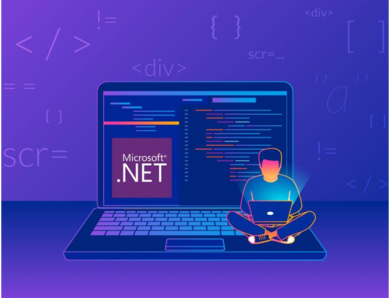
How AI Recruitment Tools Enhance Hiring Process
The hiring landscape has evolved significantly in recent years, thanks to the integration of Artificial Intelligence (AI) recruitment tools.
These tools have become invaluable assets for organizations seeking to streamline their talent acquisition processes and make data-driven hiring decisions.
In this blog, we will explore how AI recruitment tools are enhancing the hiring process and bringing numerous benefits to both employers and candidates.
Table of Contents
Importance of AI in Recruitment
Artificial Intelligence (AI) has transformed the recruitment process, offering numerous benefits to both employers and job seekers.
Its importance in recruitment is evident in the following ways:
Efficiency and Time Savings
AI-powered algorithms can quickly sift through thousands of resumes, shortlisting the most qualified candidates in a fraction of the time it would take a human recruiter.
Improved Candidate Matching
AI analyzes resumes and job descriptions to identify the best-fit candidates based on skills, experience, and qualifications, reducing the likelihood of mismatches.
Automated Screening
Chatbots and AI-driven screening tools can engage with candidates, ask preliminary questions, and assess their qualifications, allowing recruiters to focus on more strategic tasks.
Diversity and Inclusion
AI can help eliminate biases by evaluating candidates solely on their qualifications, promoting diversity and inclusion in the hiring process.
Personalization
AI can tailor job recommendations and communication to individual candidates based on their preferences and career goals, creating a more personalized candidate experience.
Predictive Analytics
AI algorithms can predict a candidate’s likelihood of success in a role based on historical data, enabling better hiring decisions.
Streamlined Sourcing
AI tools can identify passive candidates and source potential hires from various platforms and databases, expanding the talent pool.
Enhanced Candidate Experience
Chatbots and virtual assistants can provide instant responses to candidate queries, ensuring a positive candidate experience, even outside regular business hours.
Cost Reduction
By automating repetitive tasks and streamlining the hiring process, AI reduces the cost per hire and increases the overall efficiency of the recruitment process.
Continuous Learning and Improvement
AI can analyze hiring data to identify trends, assess the success of different recruitment strategies, and suggest improvements for future hires.
Scalability
AI allows organizations to scale their recruitment efforts efficiently, accommodating large volumes of applicants during hiring surges.
Remote and Global Hiring
AI-powered video interviewing and language processing tools facilitate remote and global hiring, enabling companies to tap into talent from anywhere in the world.
Competitive Advantage
Companies that adopt AI in recruitment gain a competitive edge by accessing top talent more quickly and efficiently than their competitors.
Compliance and Transparency
AI can ensure compliance with labor laws and regulations by providing an audit trail of all recruitment activities, enhancing transparency.
Reduced Human Bias
AI helps mitigate human bias in hiring decisions, ensuring fair and objective candidate evaluation.
In short, AI has become a game-changer in the recruitment industry. Its ability to automate and streamline various aspects of the hiring process not only saves time and resources but also improves the quality of hires.
Should a Company Replace Human Intelligence With AI in Recruitment?
While AI has significantly enhanced various aspects of the recruitment process, it’s important to understand that AI should not replace human intelligence entirely in recruitment. Instead, AI should complement and augment human decision-making.
Here are some reasons why a complete replacement of human intelligence with AI in recruitment is not advisable:
- Complex Decision-Making: AI can efficiently screen resumes and perform initial assessments, but hiring decisions often require nuanced judgment that considers cultural fit, soft skills, and intangible qualities that AI may not fully understand.
- Human Connection: The hiring process involves building rapport with candidates, understanding their motivations, and assessing their interpersonal skills. These aspects are better handled by human recruiters who can establish a personal connection with candidates.
- Bias Mitigation: While AI can help reduce certain biases, it can also introduce its own biases if not properly trained or monitored. Human recruiters can apply ethical judgment and oversee AI to ensure fairness.
- Contextual Understanding: Understanding the unique needs and culture of an organization is vital in making the right hires. Human recruiters are better equipped to grasp these nuances and make informed decisions.
- Adaptability: Recruitment often involves adjusting strategies based on changing circumstances, market conditions, or candidate feedback. Human recruiters can adapt to these changes more effectively than AI.
- Candidate Experience: The candidate experience is a crucial aspect of the hiring process. AI can provide efficiency, but it may lack the empathy and personal touch needed to ensure a positive experience for candidates.
- Legal and Ethical Considerations: Compliance with labor laws and regulations requires a deep understanding of legal nuances. Human recruiters are better equipped to navigate these complexities and ensure compliance.
- Creativity and Innovation: In roles that demand creativity and innovation, human recruiters can evaluate a candidate’s ability to think outside the box and contribute to novel solutions.
- Feedback and Continuous Improvement: Human recruiters can provide valuable feedback to candidates, helping them improve and grow, which is an essential part of the hiring process.
AI should be viewed as a valuable tool in the recruitment process, assisting human recruiters in tasks like resume screening, data analysis, and initial assessments. However, the final hiring decisions, especially for roles that require complex interpersonal dynamics or specialized skills, should involve human judgment and expertise.
How to Choose The Best AI Recruitment Tools?
Choosing the best AI recruitment tools for your organization requires careful consideration and research. Here are the steps to help you make an informed decision:
Define Your Recruitment Needs
Identify the specific challenges and pain points in your current recruitment process. Determine what you want to achieve with AI tools, such as faster screening, reduced bias, or improved candidate experience.
Research the Market
Explore the AI recruitment tool landscape. Look for reputable vendors and tools that align with your needs. Read reviews, case studies, and industry reports to understand their capabilities and track record.
Consider Integration
Determine how well the AI tool can integrate with your existing HR and applicant tracking systems (ATS). Compatibility is crucial to ensure a seamless recruitment process.
Evaluate Features
Create a list of must-have features and functionalities. Consider aspects like resume screening, candidate matching, bias detection, chatbots, interview scheduling, and analytics capabilities.
Scalability
Assess whether the tool can scale with your organization’s growth. It should accommodate varying volumes of job openings and candidate applications.
Ease of Use
The tool should be user-friendly for both recruiters and candidates. Complex interfaces can hinder adoption and may not provide the desired efficiency.
Customization
Determine whether the AI tool allows customization to align with your organization’s unique requirements and hiring criteria.
Data Security and Compliance
Ensure that the tool complies with data privacy regulations (e.g., GDPR) and follows best practices for data security. Protecting candidate data is essential.
Bias Mitigation
Evaluate the AI tool’s ability to detect and mitigate biases in the recruitment process. It should promote fairness and diversity.
Trial Period
Request a trial or demo of the tool to assess its performance in a real-world scenario. This allows you to gauge user-friendliness and effectiveness.
Vendor Reputation and Support
Research the vendor’s reputation, customer support, and availability for assistance. A reliable vendor will provide ongoing support and updates.
Cost and ROI
Determine the pricing model (e.g., subscription, per-user, per-job opening) and assess the tool’s cost-effectiveness. Consider the potential return on investment (ROI) in terms of time and resource savings.
User Feedback
Seek feedback from your HR and recruitment teams, as they will be the primary users. Their insights can help identify the tool’s fit for your organization.
References and Recommendations
Reach out to other organizations that have used the AI tool to gather their experiences and recommendations.
Future-Proofing
Consider the tool’s ability to adapt to evolving AI and technology trends. It should have a roadmap for future enhancements and updates.
Training and Onboarding
Assess the training and onboarding resources provided by the vendor to ensure your team can effectively utilize the tool.
Contract Terms
Review the terms of the contract, including cancellation policies and potential hidden fees, to ensure transparency.
Alignment with Organizational Goals
Ensure that the AI tool aligns with your organization’s broader talent acquisition and HR strategies.
Legal Review
If necessary, involve your legal department to review contracts and ensure compliance with all relevant laws and regulations.
Make an Informed Decision
After thorough evaluation, select the AI recruitment tool that best aligns with your needs, offers a good ROI, and has strong support and compatibility.
Choosing the right AI recruitment tools can significantly enhance your recruitment process, saving time and resources while improving the quality of hires.
The Bottom Line
We have elaborated on every aspect of the AI’s effect on the recruitment process above. You can learn from the aforementioned guidelines and choose appropriate AI tools for your company to enhance your recruitment results without any complication.
Author Bio : Gaurav Sankhla is an accomplished content expert with over 6 years of experience in crafting compelling and engaging content across diverse niches.
Gaurav works as a content strategist at HyreSnap. At its core, HyreSnap offers a cutting-edge AI Resume Builder, a tool designed to assist job seekers in crafting impressive resumes effortlessly. HyreSnap Interview as a Service will help you conduct tech interviews without any hassle. With a passion for storytelling and a knack for creating captivating web copies, Gaurav has established himself as a seasoned writer who brings a unique blend of creativity, precision, and industry expertise to his work.





No Comment